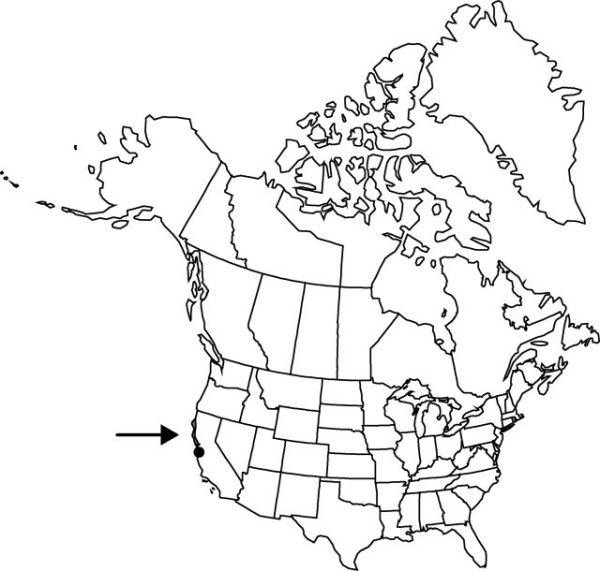Difference between revisions of "Allium dichlamydeum"
Pittonia 1: 166. 1888.
FNA>Volume Importer |
imported>Volume Importer |
||
| (6 intermediate revisions by 2 users not shown) | |||
| Line 6: | Line 6: | ||
|place=1: 166. 1888 | |place=1: 166. 1888 | ||
|year=1888 | |year=1888 | ||
| + | }} | ||
| + | |special_status={{Treatment/ID/Special_status | ||
| + | |code=E | ||
| + | |label=Endemic | ||
}} | }} | ||
|basionyms= | |basionyms= | ||
| Line 31: | Line 35: | ||
-->{{#Taxon: | -->{{#Taxon: | ||
name=Allium dichlamydeum | name=Allium dichlamydeum | ||
| − | |||
|authority=Greene | |authority=Greene | ||
|rank=species | |rank=species | ||
| Line 45: | Line 48: | ||
|publication title=Pittonia | |publication title=Pittonia | ||
|publication year=1888 | |publication year=1888 | ||
| − | |special status= | + | |special status=Endemic |
| − | |source xml=https:// | + | |source xml=https://bitbucket.org/aafc-mbb/fna-data-curation/src/2e0870ddd59836b60bcf96646a41e87ea5a5943a/coarse_grained_fna_xml/V26/V26_491.xml |
|genus=Allium | |genus=Allium | ||
|species=Allium dichlamydeum | |species=Allium dichlamydeum | ||
Latest revision as of 22:15, 5 November 2020
Bulbs 1–3, increase bulbs absent or ± equaling parent bulbs, never appearing as basal cluster, not clustered on stout primary rhizome, ovoid to ± globose, 10–15 mm; outer coats enclosing 1 or more bulbs, brown, prominently cellular-reticulate, membranous, cells arranged in ± vertical rows, forming distinct herringbone pattern, transversely elongate, V-shaped, without fibers; inner coats white, cells obscure, arranged in vertical rows, forming distinct herringbone pattern, transversely elongate, V-shaped. Leaves persistent, withering from tip by anthesis, 3–6, basally sheathing, sheaths not extending much above soil surface; blade solid, subterete or ± channeled, arcuate to ± tortuous, 7–25 cm × 1–3 mm, margins entire. Scape persistent, solitary, erect, solid, terete, 10–30 cm × 2–3 mm. Umbel persistent, erect, compact, 5–30-flowered, conic to hemispheric, bulbils unknown; spathe bracts persistent, 2, 4–6-veined, broadly ovate, ± equal, apex abruptly acuminate. Flowers campanulate, 9–12 mm; tepals ± erect, deep reddish purple, ovate, unequal, inner shorter and narrower than outer, becoming rigid and ± carinate in fruit, margins entire or inner minutely denticulate, apex acute to obtuse, spreading to recurved at tips; stamens included; anthers yellow; pollen yellow; ovary crested; processes 3, central, 2-lobed, minute, margins entire; style linear, equaling stamens; stigma capitate, scarcely thickened, unlobed or minutely 3-lobed; pedicel 5–20 mm. Seed coat dull or shining; cells minutely roughened. 2n = 14.
Phenology: Flowering May–Jul.
Habitat: Dry, clay soils on or near sea cliffs
Elevation: 10–50 m
Discussion
Selected References
None.
